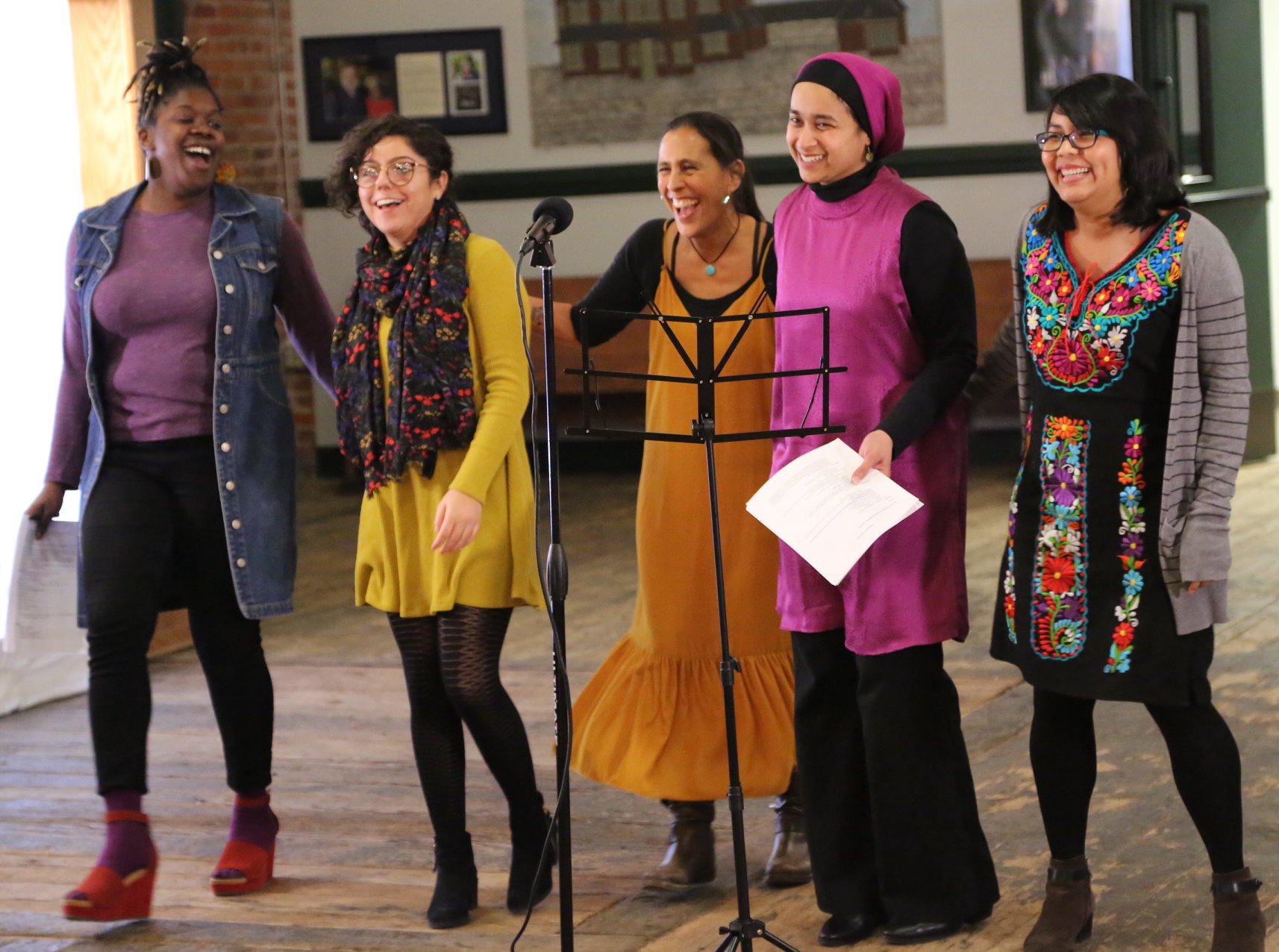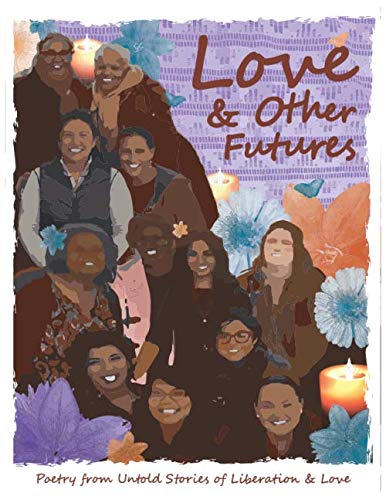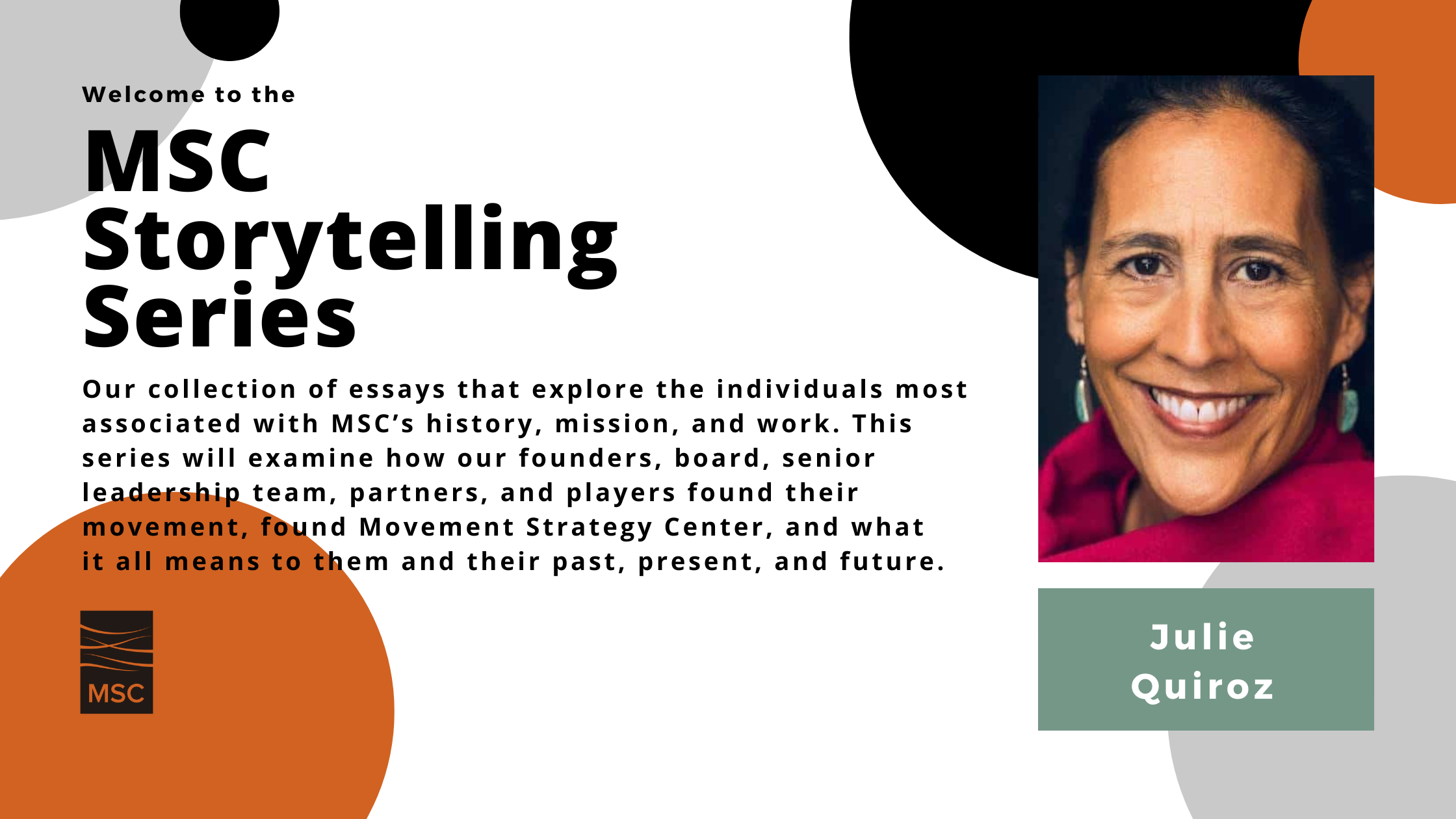Our Storytelling Series Features the Folks Most Associated With MSC's History: Meet Julie Quiroz
In this installment we get to know strategist and storyteller Julie Quiroz — formerly of Movement Strategy Center (MSC) and founder of New Moon Collaborations, a Movement Strategy Network (MSN) partner.
“Are we here for change or are we here for transformation?” It’s an important question, says Julie Quiroz — strategist, longtime collaborator of MSC, and founder of MSN partner New Moon Collaborations. “If we’re here for transformation, we need to find ways beyond just our head space to feel and experience what that means.”
Quiroz and Movement Strategy Center
Julie is talking about her early days at MSC, and how she and the MSC team were establishing that one of the key tenets of their work, and of Transformative Movement Building, was somatic, physical practice — breathing, centering, stretching. These actions felt “beautifully centered in movement work,” an “understanding of our physical wisdom, and the physical and emotional trauma and insight that we bring to anything that we’re doing.”
Quiroz found MSC through Taj James, a co-founder and current board member. The two were active in movement circles, and he and Kristen Zimmerman, another co-founder of MSC and MSN partner project Root. Rise. Pollinate!, invited her to work on an early MSC report that led to other projects with past partners including Climate Justice Alliance and Movement Generation. Quiroz formally joined MSC as a fellow in 2009.
Quiroz is quick to share the story — one of her “deepest learning experiences” — of her first day at MSC. She was expecting “a regular work day.” Instead, “my new coworkers and I met at a dance studio where Zen teacher and strategist Norma Wong taught us how to breathe.” “I remember thinking how odd it all felt;” says Quiroz. “I was pretty skeptical and resistant.”
Wong, a mentor at MSC in its earliest days, elevated the connection of mind and body, past and future — a lens that “assesses present conditions, awakens ancestral wisdom, and generates radical hope and courageous love.” Recounting that session, Quiroz shares that “each time we did an exercise, Wong asked us to describe our experience. If we started to analyze, Wong gently stopped us, inviting us to try again with simple descriptions of what we felt and saw.”
“Slowly, each of us began sharing observations that surprised us with their insight. We began to connect our observations to our stories: of coalitions unable to execute plans, of surprise attacks from opponents that we didn’t see coming, of frustration in trying to think up a new analysis that would finally work.”
She could feel her “skepticism was wearing down.”
Ultimately, “it took a year for me to truly embrace the learning that began that day, to accept Wong’s invitation to practice breath and awareness as core to our responsibility in bringing forth systems grounded in our deepest collective humanity.”
"At this point in my life and work I focus on lovingly supporting, amplifying, and expanding on the vision of women of color leaders who are guided by spiritual practice and deeply trusted in their communities."
Wong invited the MSC team “to tap into what deep down feels true,” and inspired her to “pursue purposeful action” by: being aware “of somatic and cultural factors that shape” what’s “possible and desirable;” “maintaining a daily embodied practice;” and “insisting on strategy development” informed by “narrative and story.” She was also told to prioritize “space to reflect,” observing over analyzing, community atmosphere, and ways to “immediately apply” learnings.
Practicing a ten-step form of applied tai ji shared by Wong was also imperative to her transformation. Quiroz found tai chi as she was processing “some very difficult moments in [her] life.” It helped her begin “to feel a source of power that [she] had never experienced before” and feel “transformation happening” within. Soon enough, she “became a great champion” of this work — “it changes everything.”
At that time, MSC staffers were asked to have a personal physical practice as well as a team practice. The aim was “to bring physical practice into everything we’re doing.” But even as they collectively embraced these actions, it could feel awkward outside of safe spaces. Quiroz recalls a meeting with funders. The colleague going to the meeting was nervous — “wait, I’m gonna bring physical practice to this funder meeting in New York? People in suits and heels and stuff?” Collectively, the team felt it was important to practice what they believed, so they supported the colleague as she prepared to fly out.
The meeting went well and, years later, what was once felt “so weird” isn’t anymore. “It is not that unusual for movement meetings to start with breath.” Quiroz believes the Transitions Initiative was one part of a larger movement shift that changed how people came into space together.

New Moon Collaborations
Quiroz says “at this point in my life and work I focus on lovingly supporting, amplifying, and expanding on the vision of women of color leaders who are guided by spiritual practice and deeply trusted in their communities.” Her work draws from her three decades of turning creative vision into reality, including 11 years as a part of MSC’s leadership team, where she created and implemented the aforementioned Transitions Initiative, and played a key role in the design, facilitation, and narrative strategy of the affiliated Transitions Labs.
As she tells it, “MSC, as an organization, had become a little less centralized” with a “network approach” of infrastructure, incubation, and intermediary support. As MSC evolved, her work was the first of several “to spin off in that model” as New Moon Collaborations in 2020. That cluster of people and projects ultimately formed the MSN — a collective of fiscally sponsored projects and grantees that continue to hold and share the Transformative Movement work MSC was founded on over 20 years ago.
“I really appreciate that MSC [was still able to support my work as] I had moved to another part of the country and I was doing new work that was not necessarily on some linear work plan. And I really appreciate that MSC supported the emergence of that new work.”
That current work is focused on nurturing leaps in culture that transform systems and structures for future generations through collaboration and storytelling. To do this, Quiroz collaborates with communities to develop strategy grounded in embodied wisdom and story.
It began with Quiroz relocating and wanting to bring the Transformative Movement Building concept to her new homebase in Michigan. She “saw the need for Transitions Lab type gatherings that weren’t common there.” Working with an organically organized team of women of color in Michigan, Quiroz wondered, “who’s ready and open and thirsty for transformation?”

Quiroz and others co-founded Untold Stories of Liberation & Love, a Michigan-based women of color poetry collective, and she edited the Love & Other Futures: Poetry of Untold Stories of Liberation & Love anthology. She says “poetry is the practice of seeing, naming, and valuing what oppression and violence has taught us to ignore — our tingles, intuition, dreams, magic, grief, and joy.”
They went on to pull together a statewide gathering of women of color leaders, to create space for more vision, creativity, and connection among them. Occurring just before COVID-19 lockdowns, Quiroz later learned from those who took part that the gathering was a source of energy and inspiration through those hard times.
Through these gatherings Quiroz also connected with Leseliey Welch, co-founder of both Birth Detroit and Birth Center Equity, where Quiroz is now a core team member. During COVID-19, as Welch and Birth Detroit were envisioning the possibility of owning a building, Quiroz connected Welch with James and his organizations Full Spectrum Capital Partners and Full Spectrum Labs, which helped guide in the creation of Birth Center Equity.
This journey reflects a sentiment Quiroz comes back to again and again. She believes that in “every moment” in her life she is “called to the right place with the right people at the right time.” “I’m just incredibly lucky.”
Quiroz now serves as Narrative Strategy Director for Birth Center Equity, while continuing to steward the work of New Moon Collaborations. In 2022, Quiroz relocated to Puerto Rico, where New Moon Collaborations now supports local Puerto Rican leadership as they reclaim the practices and power of ancestral agriculture to grow a vibrant culture and economy. They are the core partner for Regenerating Ancestral Puerto Rican Agriculture (RAPA) led by farmer, medicinal plant expert, and activist Susimar Gonzalez Martinez.
Key to the program is “a deep well of knowledge” within the community; something “young farmers are hungry for.” In addition, the program hopes to quell “the exploitative practices of seizing [government-owned] land by external investors;” connect young farmers to the land; and, crucially, do it “at a scale and a pace that succeeds in preserving” land and culture. Ultimately, the program hopes to “create more possibilities for young people who love their culture” to stay in Puerto Rico, slowing a “huge outflux” who are pushed out due to economic hardship.
Quiroz is deeply inspired by Puerto Rico and is deeply grateful for the centrality of dance in the culture. She recalls growing up in Ecuador, where people would wrap up dinner and “just dance.” “It wasn’t something that you knew how to do … It was just part of who you were as a human being.” It was so different from her American experience — where “U.S. capitalist culture separates creativity from daily life.”
Quiroz's Guiding Practices
Quiroz pays close attention to the phases of the moon, a practice she began years ago, and discovered is also central to ancestral agricultural practices in Puerto Rico. “Every new moon reminds me that whole worlds exist before we can see them.” She explains, “before each new moon I take a moment to write down an intention.” She believes that as opposed to goals, “intentions are more like commitments — ways we seek to be.” She always seeks out “a glimpse of the moon,” and, as it “waxes, I look for ways to infuse my intention into my thoughts and actions.”
“In ten years of practice, remembering my intention has never failed to guide me to renewed energy and possibility.” The act of “returning to my intention always grounds me in purpose.”
Quiroz’s blog shines with personal stories of work, culture, history, food, and family. And, each new moon she adds an often intimate post. One, from February, 2021, speaks to her background as an “assimilationist baby” — a product of cultural assimilation. Her father was born in rural Ecuador and eventually came to the United States on scholarship; her mother was a child of the Great Depression in Kansas. Likewise, a scholarship brought her out of poverty.
Quiroz writes: “I have never experienced poverty. But assimilation has its price … We become disconnected from the wisdom and lessons of our true past, freezing ourselves into a rootless present and an irreverent future.”
“Poetry is the practice of seeing, naming, and valuing what oppression and violence has taught us to ignore — our tingles, intuition, dreams, magic, grief, and joy.”
She has had to rediscover her lineage, which isn’t without complications. She acknowledges: “I am only a few generations away from my Indigenous Andean ancestors … And I am that same genealogical distance from the displaced European immigrants whose survival led them to the North American prairie and the violent displacement of Native nations there.”
“Learning to welcome [her] ancestors into [her] daily life” now informs her work. But, she says “it was a big leap for me to begin understanding my life in relation to all that came before me and all that lies ahead.” She recalls hearing Wong say “we are the descendants of our ancestors and the ancestors of descendants yet to come,” and getting “goosebumps.”
She says she’s “not sure you ever really know” when everything is right — but those goosebumps are an indication of something clicking. Quiroz also “listens through patterns of story and poetry,” something she used to think was a sign of being “weird or not very smart.”
A Poetry Practice
Quiroz says she came to poetry “a 1,000 years ago” at Windcall Institute where residencies are “not a retreat, there’s no programming.” She remembers apologizing for sleeping through the first day. Her hosts responded, “sleep the whole time if you want, we’re just glad you’re here.” The experience was of radical love and trust, and it was a “touchstone moment” that carried into the ethos of the Transitions Initiative — “space for unconditional love, for people to find themselves.”
It was there, “where nothing was expected of” her, that she started. “One night I woke up and grabbed an envelope from the side of my bed and I wrote.” She “never set out to be a poet” but says “it was the first time I had space to process things that had been traumatic in my life;” that she “was trying to find ways to metabolize [her] experience.”
Then and now, it all comes down to “how we bring our deepest power to the transformation that the world needs” — and how her practices unlock that power. During her earliest days at MSC, Quiroz admired Zimmerman for her steadfast devotion to her practice — no matter who showed up. In Michigan, she found that “the genesis of [her] friendship and connection to others was their commitment to some form of practice.” “Wherever we go, whether we’re the only person in the room, I know my core people are gonna bring in practice in some way.”


